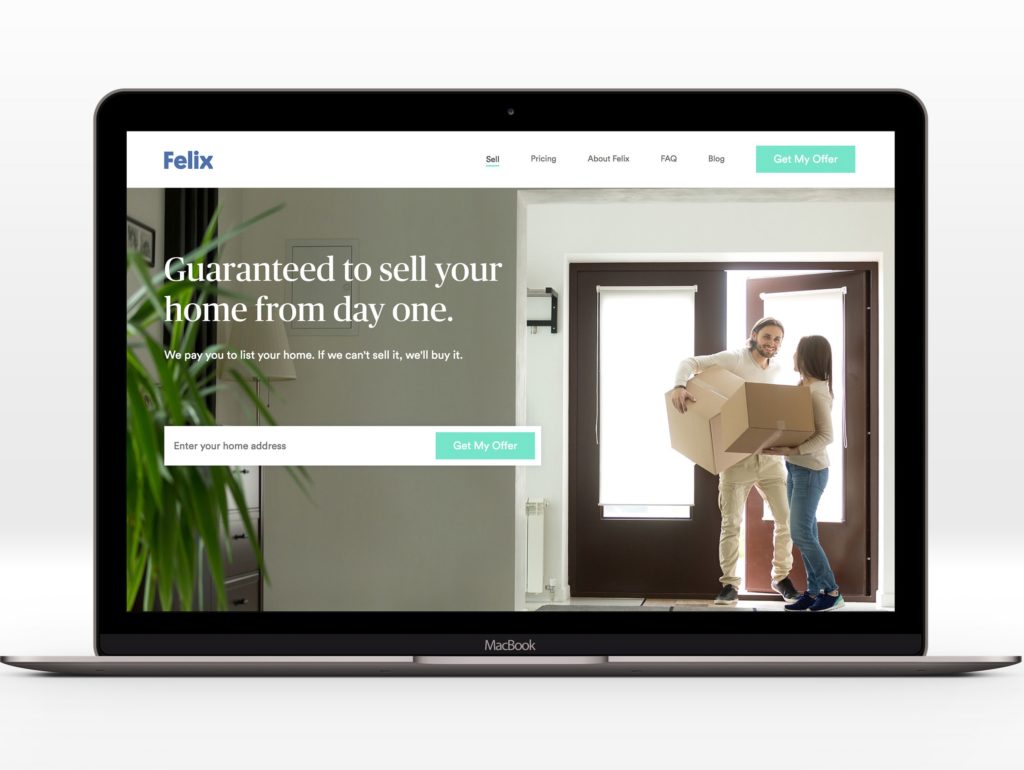You may have heard a thing or two about iBuyers recently. With so much information out there, it’s easy to miss the bigger picture. That’s why we’ve put together this quick reference guide. We want you to understand who and what iBuyers are, what impact they’re having now, and what they might mean for your business in the future. Let’s begin!
What Are iBuyers?

The term “iBuyer” can be hard to define because people use it to describe many companies with unique business models. What makes a company an iBuyer, instead of a technology developer or a house flipper?
Fundamentally, iBuyers are companies (or divisions of companies) that make fast, automated cash offers on real estate listings. Then they turn around and sell the listings, potentially remodeling or otherwise updating the properties in the process.
Some critics claim the iBuyer model is no more than an update on traditional home flipping. Proponents, however, point to the technological advances iBuyers have made. Each iBuyer has its own automated valuation model (AVM) that helps them price listings – some even using machine learning and neural networks to come to a price estimate. When it comes time to sell the listings, some iBuyers incorporate technologies such as augmented reality and identity verification to make the buyer’s experience seamless, painless, and high on the “wow factor.”
As of this writing, each iBuyer company operates in one or more pilot markets – often overlapping. Many of them have plans for rapid expansion, including moves into CRMLS service areas. In other words: if you haven’t heard of them before, you’re likely to hear about them soon, and more often.
Who Are Some of the Players?

A comprehensive list of iBuyers and the specifics of their business models is outside the scope of this post. Still, here’s a brief overview of a few iBuyers you may have heard of.
Zillow: The industry giant made waves earlier this year when it announced it would participate in its own Instant Offers program. In this program, a potential seller solicits offers from Zillow and other iBuyers in the program, along with contact info for an agent – and a higher estimated price that the seller can get on the open market. According to Zillow, some 90% of sellers who request an Instant Offer end up working with an agent.
Opendoor: Founded in 2014, this startup focuses on simplifying the homebuying and selling process. Currently (as of July 2018) operating in about a dozen cities, consumers know Opendoor for its app, quick turnaround, and flexible open house scheduling.
Offerpad: With its headquarters in Phoenix, the city Inman has called the “biggest market” for iBuyers, Offerpad is a close competitor with Zillow and Opendoor. Their website emphasizes their real estate industry expertise and understanding of sellers’ pain points.
Knock: Currently focused on cities in the Southern U.S., Knock prides itself on its brokerage capabilities and trade-in model. According to Inman, Knock is “a licensed brokerage in 10 states that employs real estate agents as ‘local licensed experts’ who are paid salaries and earn commissions.”
What Do iBuyers Mean for Your Business?

The short answer: It’s too early to tell. As of this writing, iBuyers haven’t disrupted the way most of the industry does business. That isn’t to say they will or won’t in the future, but we are only here to observe – not to speculate.
Instead, we’ll offer concrete examples of how some companies are responding to the rise of iBuyers. Here are a few that have made headlines:
OfferDepot is a website from the Kenny Klaus Keller Williams team in Phoenix. When a consumer visits OfferDepot, they enter their home’s information into a form. A Kenny Klaus Team member downloads the information, then goes out to iBuyers to solicit speedy offers. Finally, an agent from the Kenny Klaus team presents the consumer with the offers – plus a CMA. The consumer chooses whether to list their home traditionally or accept one of the offers.
Introducing Cloud Investor Connect https://t.co/KIcdqTbDKR @cloudcma
— Greg Robertson (@gregrobertson) July 17, 2018
Cloud Investor Connect is a new service from W&R Studios, makers of Cloud CMA. When preparing a Cloud CMA on a qualified home, agents will see the option to connect with an investor making a cash offer. If the agent chooses to connect, they’ll receive an offer they can include in their listing presentation. Then, if the sellers choose to accept the offer, the agent represents the investor as a buyer.

Felix Homes is a new company setting up shop in Nashville (and based in New York City) that aims to have the best of both the iBuyer and traditional brokerage worlds. When a consumer lists their home with Felix, Felix lists the property and attempts to sell it within 90 days. If 90 days pass and the home hasn’t sold, Felix buys it at 95% of list price.
Conclusion
We’ve only scratched the surface on iBuyers. (We didn’t even get a chance to talk about new companies like Eave and Ribbon that work on the other side of the transaction, to help buyers compete with cash offers.) With the technology moving so quickly, we can only keep up with what’s already happened – not guess what’s going to happen.
Even so, we hope this introduction has been helpful. As always, if you have any questions or concerns, please reach out to us in the comments below, or via the CRMLS Customer Care Department at 800-925-1525.




This Post Has 3 Comments
How can this be fair to the agents/brokers who are paying their dues including MLS dues when everybody like all these websites can have access to all the mls listings nationwide?
IBuyers have claimed their share of the market and as one company becomes successful, there are others to follow. This means any new company will get at least some share of the market, however this will not completely change traditional brokering.
Thanks for clearing that up. I actually never heard of the term ibuyers. I now have an outline on the meaning and what to expect moving forward. I did hear of Zillow and a couple of the other companies that you mentioned. I am curious about Eave and Ribbon and will research it. Thanks again for the info and please keep us updated.